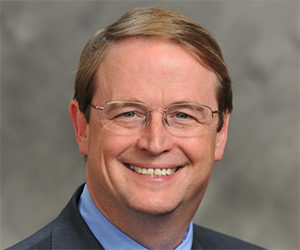 Gwyneth Paltrow is offering her Instagram followers advice while they self-quarantine. The Goop founder recommends that everyone use the pandemic as an opportunity to “write a book, learn an instrument or a language, or learn to code online.” Gwyneth may be disappointed to learn that most of us who live in New York have not taken up the cello, are not learning French, will not be finishing our novel and are not completely sure what learning to code means.
Gwyneth Paltrow is offering her Instagram followers advice while they self-quarantine. The Goop founder recommends that everyone use the pandemic as an opportunity to “write a book, learn an instrument or a language, or learn to code online.” Gwyneth may be disappointed to learn that most of us who live in New York have not taken up the cello, are not learning French, will not be finishing our novel and are not completely sure what learning to code means.
Many are working long hours in difficult situations, unable to distance themselves. Many are serving in frightening circumstances in hospitals. Many have lost their jobs. Many are sick. Many have died.
I am tired of friends who live in Nebraska closing their Facebook posts with a cheery “We got this!” In Brooklyn, where I am a pastor, “We got this!” has a different connotation amid the blaring ambulance sirens we hear every day.
As a church member said during one of the one hundred Zoom meetings and chats I have been on in the last month, “The road is washed out and we’re not sure where we’re going.”
We wake up surrounded by despair. We feel helpless and anxious. We want to look at a bundle of mail, a door handle or a box of groceries without worrying that it is covered with invisible germs that could make us sick or kill us.
“Easter was a hard day to feel hope in our congregation, which may mean that whatever hope we felt matters more.”
We spend our days knowing that the next story about a nurse, soldier or teacher who died too soon will make us cry again. We want to travel farther than our stoop, share a cup of coffee with our friends and go to church. We want to stop pretending we know more about medicine than we actually know.
We want life to be ordinary again – even though we are not sure what that will look like. What has to happen for us to feel normal? When will we be comfortable? How will we know this is over? When will it be okay to go to a ball game, restaurant or theater?
What scientist or politician will we trust when he or she tells us it is all right to hug grandma? How long until we shake hands again? How uneasy will we feel when we do?
We are waiting for an invisible enemy to retreat. How will we know when our adversary is gone? We just want it to be over.
 COVID-19 made this a painful Easter. We missed the crowd of friends, overabundance of lilies, glut of plastic eggs, surplus of chocolate and embarrassment of bunnies. We did not have hot cross buns or marshmallow peeps, because right now death feels more powerful than life.
COVID-19 made this a painful Easter. We missed the crowd of friends, overabundance of lilies, glut of plastic eggs, surplus of chocolate and embarrassment of bunnies. We did not have hot cross buns or marshmallow peeps, because right now death feels more powerful than life.
Sunday did not feel like Easter; except for this: what may have been our saddest Easter may also have been our most Easter-like Easter. This Easter felt frightening, somber, and confusing – like the first Easter. The fear of death makes us cherish life. Longing for hope is the first step towards experiencing hope.
On Sunday, I stood in an empty room to proclaim the empty tomb. We prayed that feeling the death that encircles us would lead to a deeper life. We hoped that we might break through, even though it feels like we are breaking down. Instead of pretending sorrow does not exist, we tried to face it head on. We want to know that death will not destroy us. Easter was a hard day to feel hope in our congregation, which may mean that whatever hope we felt matters more.
On Sunday, we longed to believe that darkness will not win and death will not be victorious. We want to be raised with Christ to new life. We want to let joy loose in our hearts, even though it seems premature.
We gathered in front of laptops and heard the promise that one day the long night will be over and the morning will break. We gathered in virtual space at the epicenter of a global pandemic and tried to believe that the death that surrounds us does not compare with the life God will give.
This year it is clear that we need a path that leads from death to life. We need Easter’s hope. We need to believe that life will triumph over death.
On Sunday in New York, we knew how much we need Easter.
Read more BNG news and opinion on this topic:
#intimeslikethese
